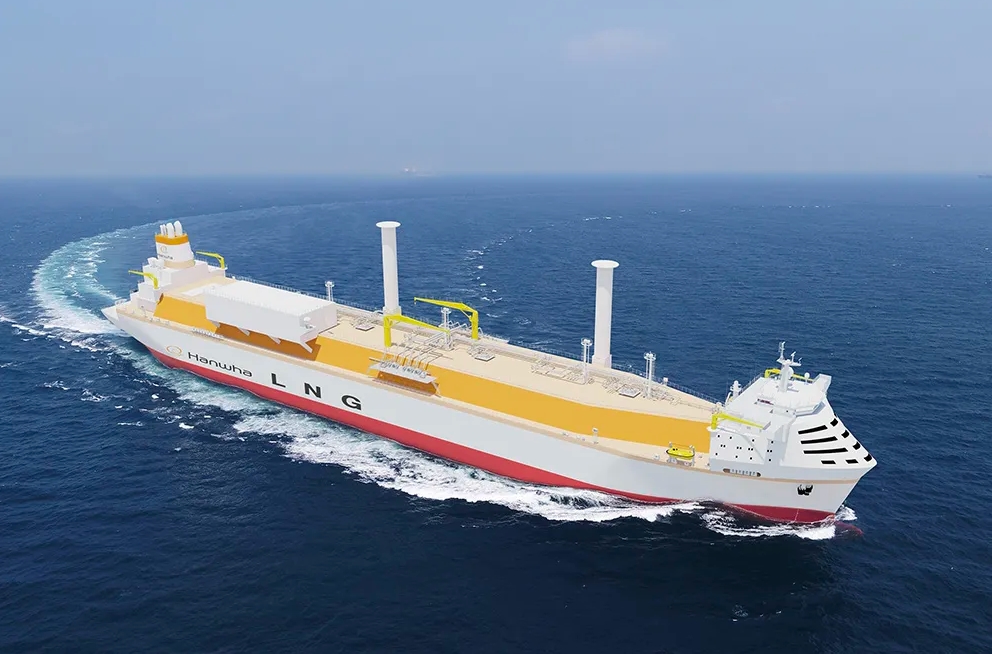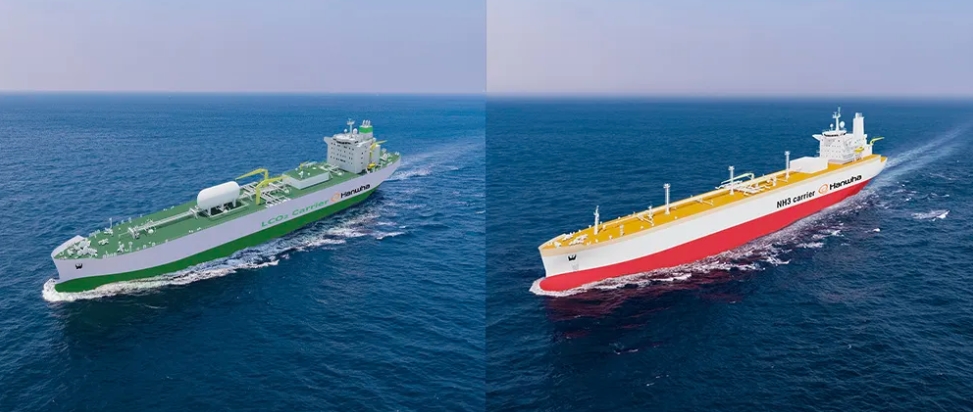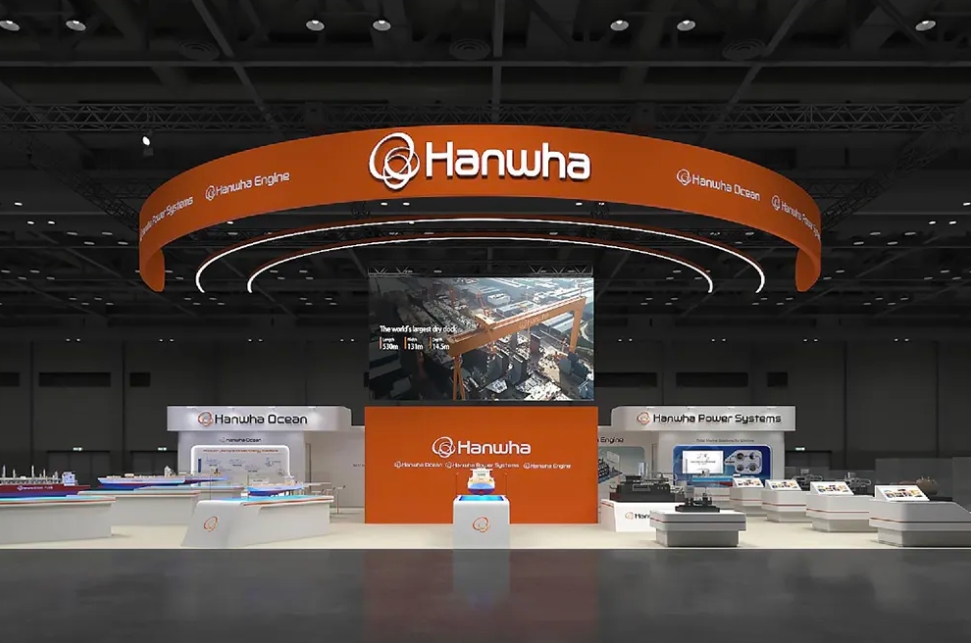Hanwha unveiled comprehensive ecofriendly engine and ship solutions at Gastech 2024 in Houston, Texas, showcasing integrated decarbonization strategies
Hanwha presented its comprehensive roadmap for maritime decarbonization from September 17-20 at Gastech 2024 in Houston, Texas, U.S. The company unveiled carbon-free ships, propulsion systems, and a range of ecofriendly solutions designed to meet the diverse needs of customers and support their entire journey toward a carbon-neutral future.

Hanwha Ocean unveiled its next-generation ships, including the Ocean 1, a vessel that is being designed for future carbon-free operations with an ammonia gas turbine-based electric propulsion system and advanced ecofriendly and digital solutions. This marks the first presentation of technologies behind Hanwha’s blueprint for developing a zero-emission gas carrier. The unveiling of Ocean 1, backed by key certifications, demonstrates Hanwha’s commitment to driving innovation in sustainable maritime solutions. The company’s Quantitative Risk Assessment (QRA) for ammonia-fueled gas turbine ships, completed with ABS, confirmed the safety of its ammonia propulsion system by analyzing various potential fuel leak scenarios for toxicity and explosiveness. The certification meets International Association of Classification Societies (IACS) standards, opening the doors to commercializing Hanwha Ocean’s ammonia propulsion ships.

In the area of hydrogen-powered vessels, the company received Approval in Principle (AiP) from DNV for an 80,000 CBM class liquefied hydrogen (LH₂) carrier, which utilizes boil-off hydrogen gas to generate carbon-free electricity, enabling zero-emission operations. Additionally, Hanwha Ocean obtained Type Approval Design Certification (TADC) from DNV for composite rotor sails — cylindrical structures installed on the deck of a ship to harness wind energy and provide additional propulsion — validating the design for real world application. The company also received AiP from the Liberian Registry and BV for a solution that addresses navigation blind spots caused by rotor sails.

Hanwha Ocean showcased a model of an LNG carrier powered by ammonia gas turbines at the exhibition. In addition to these models, the company presented an array of next-generation ecofriendly ships, such as a 93,000 CBM class ammonia carrier powered by ammonia, and a 40,000 CBM class liquefied carbon dioxide (LCO2) carrier. Hanwha Ocean also showcased the world’s first floating LNG production (LNG-FPSO) unit, further emphasizing its leadership in innovative marine solutions.
Key to realizing Hanwha Ocean’s next-generation LNG carrier is Hanwha Power Systems’ ammonia gas turbine technology. This carrier is designed to be completely carbon free by eliminating the need for pilot fuel, with the project expected to be completed by 2028. To advance this technology, Hanwha Power Systems signed a memorandum of understanding (MOU) with GasLog, a major European LNG carrier company, to explore converting LNG carrier propulsion systems into ammonia gas turbines and discuss demonstration measures for replacing the ships’ fossil fuel engines with ecofriendly ammonia gas turbines. Expanding its portfolio of sustainable solutions, Hanwha Power Systems also showcased its ecofriendly ship retrofit business, enabling vessels currently running on fossil fuels to be converted to ammonia-powered systems.
Meanwhile, Hanwha Engine, which joined Hanwha Group in March 2024, brings in-house expertise to rapidly develop and deploy ecofriendly engine solutions. The company presented its ecofriendly dual-fuel engine and equipment, which blends zero-carbon ammonia with existing fuels, significantly aiding carbon reduction. Hanwha Engine also offers long-term service agreements (LTSA) for life cycle care services and has introduced a green retrofit business for existing ships.